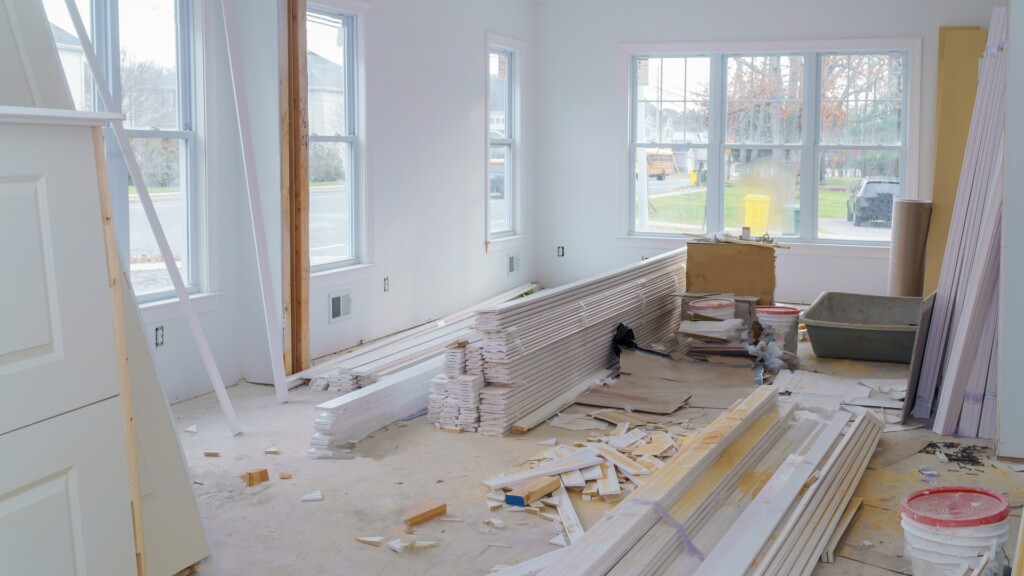Georgia has long ranked among the Southeast’s most investor-friendly states, and 2025 is no exception. Median statewide sales prices nudged up to about $360,000 in 2024 and have stayed within two percent of that mark this spring, even as active listings jumped roughly 25 percent year over year. That rare combination—steady values plus fresh supply—creates a Goldilocks zone for investors: enough new inventory to uncover bargains, but not so much that resale prices are slipping.
Zoom in and the pattern holds. Atlanta proper averaged roughly $593,000 for single-family sales in Q1 2025, a five-percent annual bump. Outer-ring counties including Paulding and Barrow posted double-digit appreciation off a lower base, while the coastal corridor from Savannah to Brunswick remains hot on the back of port expansion, EV-plant construction, and continued Sunbelt migration. Savannah’s average home value is now just north of $322,000, up nearly two percent in a year.
Macro tailwinds reinforce the story. Georgia’s population and household incomes keep climbing, the cost of doing business stays low, and mortgage rates—hovering near 6½ percent—have slowed demand only marginally. Statewide, median “days on market” sits around 38. For flippers, well-executed rehabs can still exit quickly if priced right.
Reading Georgia’s Market Pulse: Spotting Neighborhood-Level Momentum
Statewide trends point you in the right direction, but flips succeed or fail at the ZIP-code level. Drill down by watching:
-
Migration and infrastructure maps. Follow new-job corridors such as the Hyundai EV plant east of Savannah and the Rivian project along I-20; property values tend to pop first on the commuter fringes.
-
School rezoning and medical-campus growth. Families pay premiums for top-ranked districts, while young professionals cluster near hospital expansions in Augusta and Macon.
-
Building-permit and rezoning data. A spike in permits often precedes retail upgrades and rising comps.
Pair those public indicators with boots-on-the-ground intel from local REALTORS®. Remember, Georgia has 159 counties—what’s true in rural Tift County may be meaningless in Atlanta’s Westside. Hyper-local comps are king.
Crunching the Numbers: Budgeting & ROI Benchmarks That Work Here
-
Purchase price. A classic rule in Georgia is to buy at 70 percent or less of the property’s after-repair value (ARV) minus estimated rehab costs. In transitional Atlanta neighborhoods, a 1,600-square-foot bungalow might resell near $450 k; landing it under $250 k gives plenty of margin.
-
Rehab costs. Labor runs slightly cheaper than the U.S. average, but materials mirror national indexes. Budget $45–$75 per sq ft for cosmetic flips and up to $110 for gut jobs. Pad 10-15 percent for termite surprises—Georgia ranks top-five nationally for Formosan activity.
-
Holding costs. Property taxes average 0.69-0.83 percent of assessed value statewide; some metro-Atlanta areas top 1.4 percent. Add hazard insurance (about $1,100/year on a $300 k dwelling), utilities, and hard-money interest.
-
Exit taxes. Flips held under 12 months are taxed as ordinary income. Georgia’s flat income-tax rate is 5.39 percent for 2024-25. Include it in your after-tax ROI math.
A solid target for 2025: 15-22 percent net ROI on a true flip, assuming roughly a 120-day hold and disciplined project management.
Funding the Deal: Georgia-Specific Financing Options
-
Hard-money lenders dominate the flip space—10-12 percent interest, one to two points, six- to twelve-month terms, and up to 85 percent loan-to-cost are common.
-
HELOCs and portfolio lines from community banks in secondary markets (Gainesville, Milledgeville) often close faster than big banks and price at prime + 1.
-
Equity partnerships forged at local real-estate-investor meetups (Atlanta REIA, Middle Georgia REIA) pair capital with a project manager’s sweat equity.
Georgia is an attorney-close state, so plan $750-$1,000 in legal fees any time a lender is involved.
Due Diligence in a “Caveat Emptor” State
Georgia’s buyer-beware stance means sellers don’t complete lengthy disclosure forms. They must, however, reveal known latent defects that a normal inspection wouldn’t catch. Protect yourself by commissioning a full inspection—roof, foundation, HVAC, and termite—in the due-diligence window and photographing every repair for your records.
Other must-knows:
-
Lead-based paint rules (pre-1978 housing), federal flood-zone notices, and HOA disclosures still apply.
-
Stigmatized property issues (death, felony, disease) don’t have to be volunteered; ask directly if you care.
-
Skipping disclosure or cutting corners can trigger lawsuits that erase an entire profit margin, so play it straight.
Understanding Georgia Building Codes & Permit Hurdles
Georgia enforces State Minimum Standard Codes—essentially the 2021 IRC/IBC with local amendments. All counties must follow the mandatory parts, even if they lack robust building departments.
-
Permits are required for any structural changes, electrical service replacement, HVAC swaps, or work that alters egress.
-
Licensed contractors are mandatory for structural work over $2,500 or HVAC/ plumbing jobs above $5,000.
-
Inspection sequence usually runs footing → framing → rough-ins → insulation → final. Some metro counties bundle inspections to shorten timelines.
-
Triple-fee penalties kick in if you start without a permit—plus insurance can refuse claims—so file paperwork first.
Renovation Tactics That Sell in Georgia
-
Fight humidity. Opt for fiber-cement siding, mold-resistant drywall, and ridge-vented roofs.
-
Hit the energy code. The 2020 IECC amendment makes air-sealing and R-49 attic insulation low-cost appraisal boosters.
-
Design to demand. Today’s buyers crave dedicated WFH space and outdoor living (screened porches are huge across the Piedmont). Matte-black hardware, wide-plank LVP, and quartz counters still fly off MLS sheets.
-
Termite bonds. A transferable bond from a licensed pest firm calms buyer nerves and costs less than the resale bump it delivers.
Timeline Management: Embracing the 90-Day Reality
Even smooth flips rarely close in under three months once hammers swing. If your buyer uses FHA funds, remember the 91-day flip rule: contracts signed sooner trigger double appraisals and extra scrutiny. Build that hold time into your financing.
Marketing the Finished Product the Georgia Way
-
Stage to lifestyle. In Atlanta, advertise BeltLine access and walkability; in rural markets, showcase acreage and workshop space.
-
Price to appraise. Appraisers still lean heavily on closed comps within a mile; over-improving more than 15 percent past the neighborhood median risks valuation shortfalls.
-
Close with an attorney who knows investor deals—they’ll coordinate lien waivers, title, and Georgia’s modest intangible-tax calculation on any new buyer mortgage.
Risk Management & Exit Strategies
-
Backup exit: If the market cools, convert to a rental. Georgia’s landlord-friendly statutes allow a three-day pay-or-quit notice before filing dispossessory.
-
Insurance: Carry both builder’s-risk and general liability; many lenders now require a $2 million umbrella.
-
Market watch: Inventory levels above six months often signal flat or falling prices; list sooner if supply crosses four months.
Community & Resources That Fast-Track Success
-
Georgia Association of REALTORS® for market stats and standard contracts.
-
Local REIAs in Atlanta, Savannah, and Augusta for networking, deal flow, and contractor referrals.
-
Georgia DCA Construction Codes Hotline for quick permit clarifications.
-
Hard-money directories and private-lender meetups for funding partners.
Networking speeds everything—contractor bids, off-market leads, even early whispers of city rezoning.
Conclusion
Flipping houses in Georgia in 2025 is equal parts art and regulated science. Study hyper-local demand drivers, keep your numbers razor-sharp, follow buyer-beware disclosure rules, and respect the state’s strict but investor-friendly building codes. Do that, and the Peach State’s blend of growth, moderate taxes, and resilient home values can deliver double-digit returns project after project. Every successful flip here is a masterclass in market knowledge—make each one count.
Frequently Asked Questions
How long does it usually take to get a building permit in Georgia?
In major metro counties, plan 10–15 business days for plan review. Rural counties can issue same-day permits for light cosmetic work. Add inspection lead times—framing inspections often book two weeks out during the spring rush.
Do I need a real-estate license to flip houses in Georgia?
No. You can buy, renovate, and sell property you own without a license. If you market or negotiate on behalf of others, Georgia law requires a salesperson or broker license. Many high-volume flippers obtain one to access MLS data and save listing commissions.
What’s the minimum profit margin I should target in 2025?
Experienced Georgia investors aim for at least 15 percent net ROI after every cost is paid. Twenty percent is the preferred buffer against market hiccups—about $45,000 on a $300,000 ARV flip.


